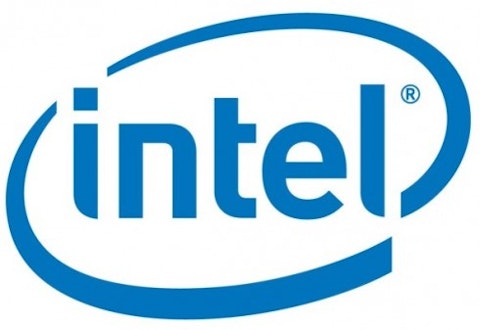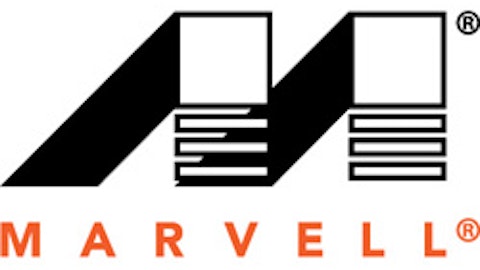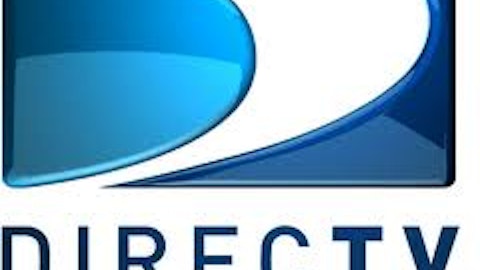Editor’s Note: QUALCOMM, Inc. (NASDAQ:QCOM), Intel Corporation (NASDAQ:INTC), Broadcom Corporation (NASDAQ:BRCM)
Qualcomm sells Omnitracs to Vista for $800 million (TelecomEngine)
US chipmaking giant Qualcomm has sold its Omnitracs telematics division to private-equity player Vista for the sum of $800 million in cash. The deal is to include all the Omnitracs operations in the US, Canada and Latin America, as well as Sylectus and FleetRisk Advisors – telematics businesses that Omnitracs bought in 2011. The transaction is expected to close between October and December after the companies have secured the necessary regulatory approvals. Omnitracs has flourished since coming into existence in the late 1980s, but faces competition from a variety of companies in the fast-developing telematics market, while QUALCOMM, Inc. (NASDAQ:QCOM) appears keen to focus on its core business of developing chips for smartphones and other mobile devices.
Intel says SSD overclocking is possible, will demonstrate at IDF 2013 (Update: Confirmed) (ExtremeTech)
At the Intel Developer Forum in San Francisco, Intel Corporation (NASDAQ:INTC) will perform the first public demonstration of an overclocked SSD. Details are very slim at the moment, but in theory it should work: Solid-state drives, like your DRAM or CPU, are driven by a clock — it should be possible to boost an SSD’s performance by meddling with that clock, or perhaps altering the timings. Whether the overclock reduces stability and data retention/integrity, though, remains to be seen. The SSD overclock will be demonstrated at IDF 2013 on September 10, at a session titled “AIOS001 – Overclocking Unlocked Intel® Core™ Processors for High Performance Gaming and Content Creation.”
Broadcom tapping into wearable tech market with new Wi-Fi framework (ZDNet)
Hoping to get in at the ground floor of the wearable technology market, Broadcom Corporation (NASDAQ:BRCM) has introduced a new Wi-Fi framework for embedded devices. Solely based on countless buzz and rumors surrounding mysterious products from Apple, Samsung and Google, this new segment in smart as well as mobile computing is about to burst. Initial entries such as the Pebble smartwatch and even the developer version of Google Glass have demonstrated that at least the interest is out there. The gap between the mobile tech makers and consumers is going to be bridged by the right mixture of advanced but also affordable technology.
QUALCOMM, Inc. (NASDAQ:QCOM) Has Given $2 Million To Northwestern For Undertaking Intellectual Property Research (eFinance Hub)
Searle Center at Northwestern University School of Law has got $2 million by QUALCOMM, Inc. (NASDAQ:QCOM) in order to fund research that will find out the role of patents in stimulating innovation. Yesterday, the director of the Searle Center and a law professor at Northwestern, Matthew Spitzer said in a phone interview that there is an anti-patent gist in the academic literature. People are incredulous about the patents’ value, but he was not one of them. Along with Daniel Spulber, Kellogg School of Management professor, Spitzer has talked to QUALCOMM, Inc. (NASDAQ:QCOM) executives and has thrown the idea of a center that was not ideologically inclined to loathe patents. Basically they said if someone does this they will provide funds for it.
Intel Emotion Sensing Tech Could Allow Your Next Smartphone to Cheer You Up (Gotta Be Mobile)
Intel Corporation (NASDAQ:INTC) is developing new camera technologies that could sense emotion, allowing for a world where your smartphone could sense that you’re not having a good day and cheer you up. Still a far cry from a cure for depression, a mood-tracking phone could open the doors to your phone offering you some ways to remedy the blues. Intel Corporation (NASDAQ:INTC)’s new algorithms would be able to track what you’re feeling by the emotional response given on your face. The feature could be delivered to laptops and Ultrabooks as soon as late next year, and eventually these sophisticated cameras could be embedded on smartphones and tablets.






